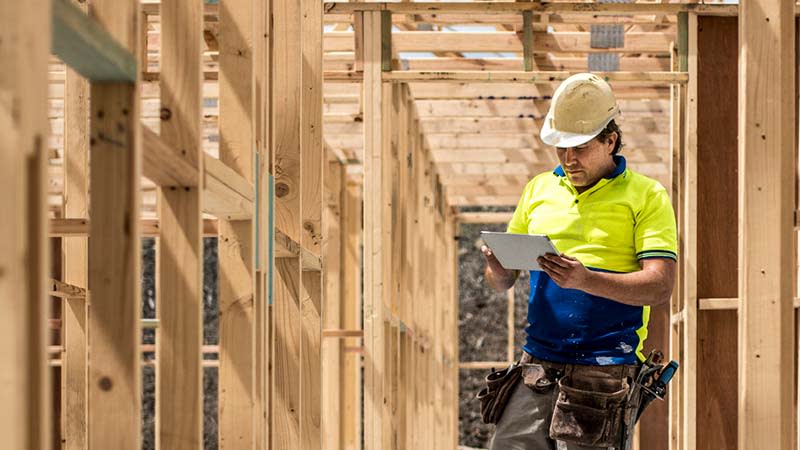Feds’ Foreign Ownership Reform Wins Backing

Foreign investors will not be allowed to buy established Australian homes for at least two years from April.
The measure is among the Federal Government’s reform package aimed at redirecting overseas investment into new housing development.
The temporary ban, which is to end on March 31 of 2027, prevents foreign investors, including temporary residents and foreign-owned companies, from buying established homes. There are some exemptions.
Treasurer Jim Chalmers described the measure as “minor but meaningful”.
He said that although foreign investors were generally restricted from buying existing property, the new policy closes exemptions previously available to temporary residents.
The exemptions that remain include investments that significantly increase housing supply or support housing availability through the Pacific Australia Labour Mobility scheme, which allows Australian businesses to hire workers from Pacific nations for unskilled and semi-skilled roles.
The Australian Taxation Office (ATO) will receive $5.7 million over four years to enforce the ban and enhance screening of foreign investment of residential property.
Property Council group executive policy and advocacy Matthew Kandelaars backed the reform package’s focus on new housing.
“Australia has relied on global investment—using other people’s money—to help build and shape our cities for the last three quarters of a century and we shouldn’t stop now,” Kandelaars said.
ATO data suggests the impact on existing housing stock may be limited.
In 2022-2023, foreign investors accounted for 5360 residential real estate purchases worth $4.9 billion, with only 34 per cent involving existing homes.
Marshall White Projects director Leonard Teplin said “time will tell whether this will have a meaningful impact on the off-the-plan market”.
“Given the ban is applied to temporary residents and on established homes, we expect to see some uptick in this cohort seeking off-the-plan properties,” Teplin told The Urban Developer.
“That said, stats show a large portion of temporary residents are here on student visas. Typically, temporary visa holders would wait one to five years for their permanent residency to come through in any case, to avoid massive stamp duty penalties.”
Victoria and Queensland recorded the highest number of foreign purchases of existing homes at 458 and 403 respectively, followed by South Australia with 313 and New South Wales with 165.

An additional $8.9 million has been allocated until 2029-30 to implement an audit program targeting land banking by foreign investors.
Foreign investors who acquire vacant land must comply with development conditions ensuring productive use within specified timeframes.
“We’re cracking down on land banking by foreign investors to free up land to build more homes more quickly,” the Government said in a statement.
The enhanced compliance program would scrutinise investors “who are acquiring vacant land, not developing it while prices rise and then selling it for a profit”.
“This activity breaks the rules and results in delays to the development of essential residential housing and commercial developments,” the Government said.
“Foreign investors are subject to development conditions when they acquire vacant land in Australia to ensure that it is put to productive use within reasonable timeframes.”
While welcoming these measures, the Property Council said addressing land banking was just one element of Australia’s housing supply challenge.
The industry body has called for broader reforms to boost housing delivery.
Property Council chief executive Mike Zorbas said the housing crisis demanded a multi-faceted response and “with cost-of-living pressures and housing affordability consistently the two issues of most concern for Australians, the Government can and should use its balance sheet to support first-home buyers and the delivery of new homes”.
The council advocates for doubling the committed $3-billion performance-based New Home Bonus and establishing a dedicated Housing Sub-Committee of Cabinet.
It also highlights a critical skills shortage in the construction sector, noting that less than 2 per cent of skilled workers entering Australia over the past two decades possessed construction trade qualifications.
Master Builders Australia chief executive Denita Wawn confirmed the significance of migration’s role in addressing this skills gap, saying “labour shortages are currently the biggest handbrake on new home building and infrastructure projects”.

Late last year, the Federal Government reversed its position on skilled migration for construction workers, adding building trades to its core occupation list to help address the housing crisis and chronic skills shortage.
The ATO and Treasury will publish updated policy guidance before the changes to foreign ownership rules take effect from April 1, 2025.
These would include detailed implementation guidelines, including specifics about exemption criteria and compliance requirements, the Government said.
Foreign investors who had acquired or are proposing to acquire vacant residential or non-residential land would face increased scrutiny to ensure development condition compliance.
The Government would conduct a review during the two-year ban to determine whether the measures should be extended or made permanent.
The Property Council has indicated support for the policy’s focus on new housing development but emphasised the continued importance of foreign investment in Australia’s residential construction sector.
“Policies that sensibly focus that investment into new homes and apartments to house our growing population make sense,” Kandelaars said.















